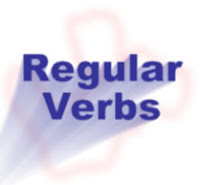
| Infinitive | Past Simple |
| Be ser/estar | Was/were |
| Begín empezar | Began |
| Break romper | Broke |
| Bring traer | Brought |
| Build construir | Built |
| Buy comprar | Bought |
| Catch coger | Caught |
| Choose eligir | Chose |
| Cost costar | Cost |
| Cut cortar | Cut |
| Do hacer | Did |
| Draw dibujar | Drew |
| Drink beber | Drank |
| Drive conducir | Drove |
| Eat comer | Ate |
| Fall caer | Fell |
| Feel sentir | Felt |
| Find encontrar | Found |
| Fly volar | Flew |
| Forget olvidar | Forgot |
| Get coger/tener | Got |
| Give dar | Gave |
| Go ir | Went |
| Grow crecer | Grew |
| Have tener | Had |
| Hear oir | Heard |
| Keep guardar | Kept |
| Know saber | Knew |
| Let dejar | Let |
| Lose perder | Lost |
Make hacer | Made |
| Mean significar | Meant |
| Meet encontrar | Met |
| Pay pagar | Paid |
| Put poner | Put |
| Read leer | Read |
| Ring llamar | Rang |
| Rise subir | Rose |
| Say decir | Said |
| See ver | Saw |
| Show mostrar | Showed |
| Sing cantar | Sang |
| Sell vender | Sold |
| Send enviar | Sent |
Shut cerrar | Shut |
| Sit sentarse | Sat |
| Sleep dormir | Slept |
| Spend gastar/pasar | Spent |
| Swim nadar | Swam |
| Take tomar | Took |
| Teach enseñar | Taught |
| Tell decir | Told |
| Understand entender | Understood |
| Wake despertarse | Woke |
| Wear llevar | Wore |
| Win ganar | Won |
| Write escribir | Wrote |
- Para encontrar un listado más amplio con más de 370 verbos irregulares utilizados en el idioma inglés, haz click en el siguiente vínculo : http://www.englishpage.com/irregularverbs/irregularverbs.html
- Para encontrar Verbos irregulares en inglés junto a sus respectivos significados en español te invitamos a que visites el siguiente enlace, donde además podrás repasar algunos asuntos relativos al tiempo verbal en pasado : http://www.lingolex.com/simplepast/allverbs.htm


